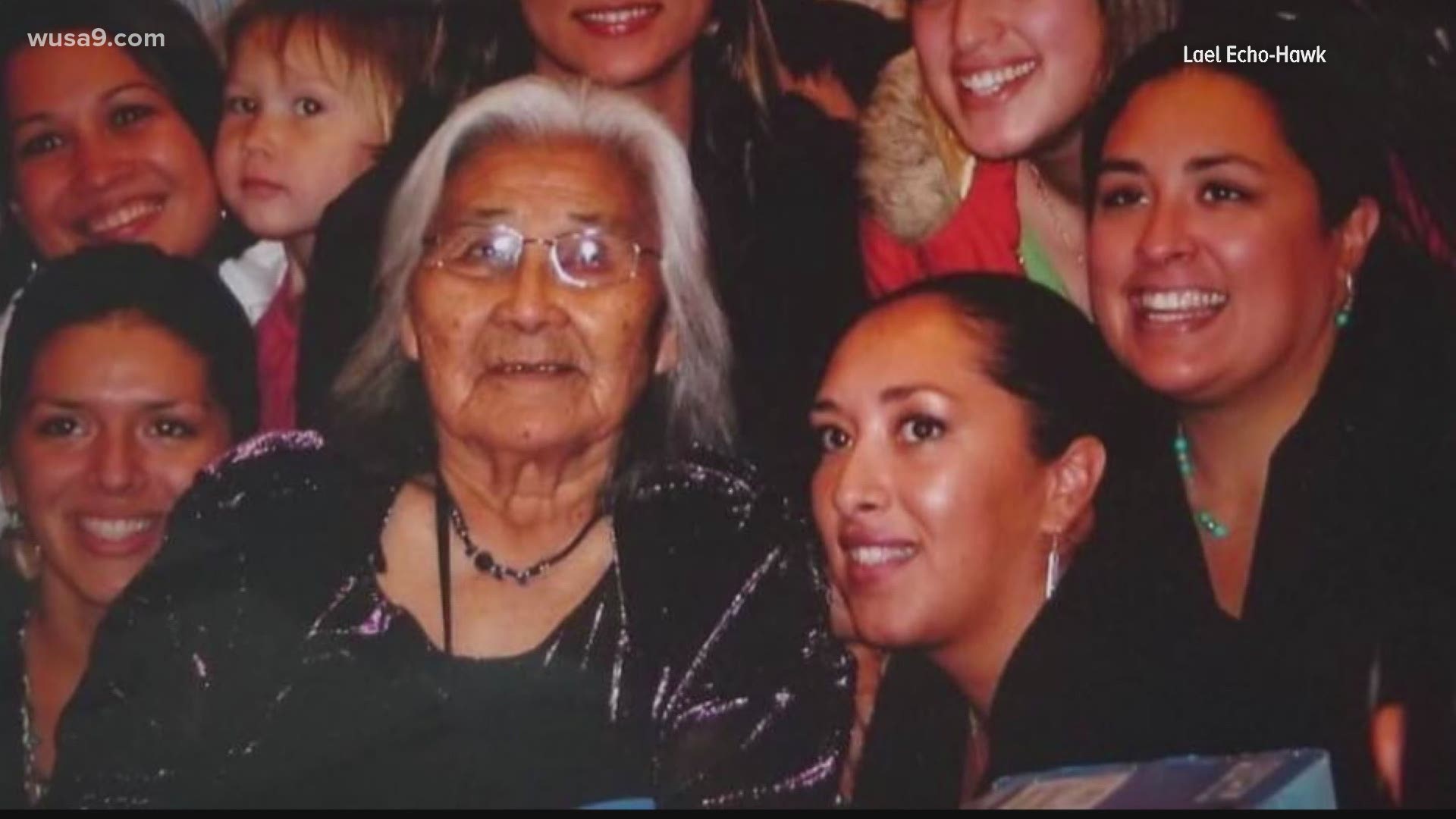WASHINGTON — With many cities and counties around the country changing Columbus Day to Indigenous Peoples' Day, people with Native American roots are taking advantage of the opportunity to shape their own narrative.
“I like it because it puts our issues on the forefront of the American thought process, for a day," Lael Echo-Hawk said. "Even if it’s just a day, yay, because too often, we’re not."
Echo-Hawk has roots in the Pawnee tribe on her father's side and grew up in Alaska in the Mentasta Lake Village. Now, she serves as general counsel for the group and practices all aspects of Indian law from her Northeast DC home.
She said the latest issues facing her community are ramifications of the coronavirus pandemic.
“My clients are scrambling trying to figure out how can we spend this money so that we can change the way our community lives?" she said. "Like hot water at the community center…that really would be world-changing, but you’re running up against this Dec. 31 deadline.”
That deadline refers to when the CARES Act funding runs out. She said the extra money helped her community survive -- when they finally received some of the funding -- but they'll need it going into 2021.
Even though Echo-Hawk said it took some pushing to get the funds out to her village in Alaska, she has seen progress when it comes to respecting the indigenous community and recognizing their contribution to the history of America.
“The Washington Football Team is no longer named that atrocious name," she said. "We’re seeing cities and counties removing names…so we’re changing that conversation, and I think that’s all part of it…Even the Columbus statue coming down, that started a conversation that needs to happen in this country. We need to continue learning the true facts of history."
Helping to lead young activists in the fight for Native recognition and celebration is college senior Kendra Becenti.
She descends from the Diné (Navajo) nation and grew up in Albuquerque, New Mexico with her two moms and sister. Now, Becenti is studying Native American Studies and Sociology at Stanford and is interning with D.C.'s Center for Native American Youth.
“Indigenous youth out there, we are testaments to that power, that resilience that we get from our ancestors that were forced to endure those atrocities," Becenti said. "But they survived, and we are a reflection of that. And I think in the day to day, it really does feel like a blessing, but also carries a lot of weight to it. I don’t feel like if I did anything else with my life that wasn’t sort of directly engaged in change that benefits indigenous communities, I don’t think I would have a purpose otherwise. I think that love for my community…is what fuels I think every Native person out there.”
She said the Black Lives Matter movements across the country have inspired her -- and helped motivate other communities to demonstrate, like young indigenous people.
“I've seen a lot of intersectional and community building with our indigenous and Black relatives out there, which is something really cool to see," Becenti said. "We can’t really have Black liberation without indigenous sovereignty and vice versa, and that’s something really huge that’s starting to come out with all these movements out there…And I think Indigenous Peoples' Day is a reflection of that. I know there are a lot of monuments that actively celebrate white supremacists and were being torn down associated with the movement, and I think that’s truly positive.”
Over the summer, protesters tore down a Christopher Columbus statue in Richmond and others did so to the one in Baltimore.
Becenti said after growing up with institutions that were not built for her, she's excited about the spark of change in the air.
“It’s time for a shift," she said. "It’s time that things change, and I’m excited that a lot of indigenous youth out there are stepping up and trying to be in every part of that change.”
And she and Echo-Hawk said it starts with having the opportunity to share their story, in their voices.

